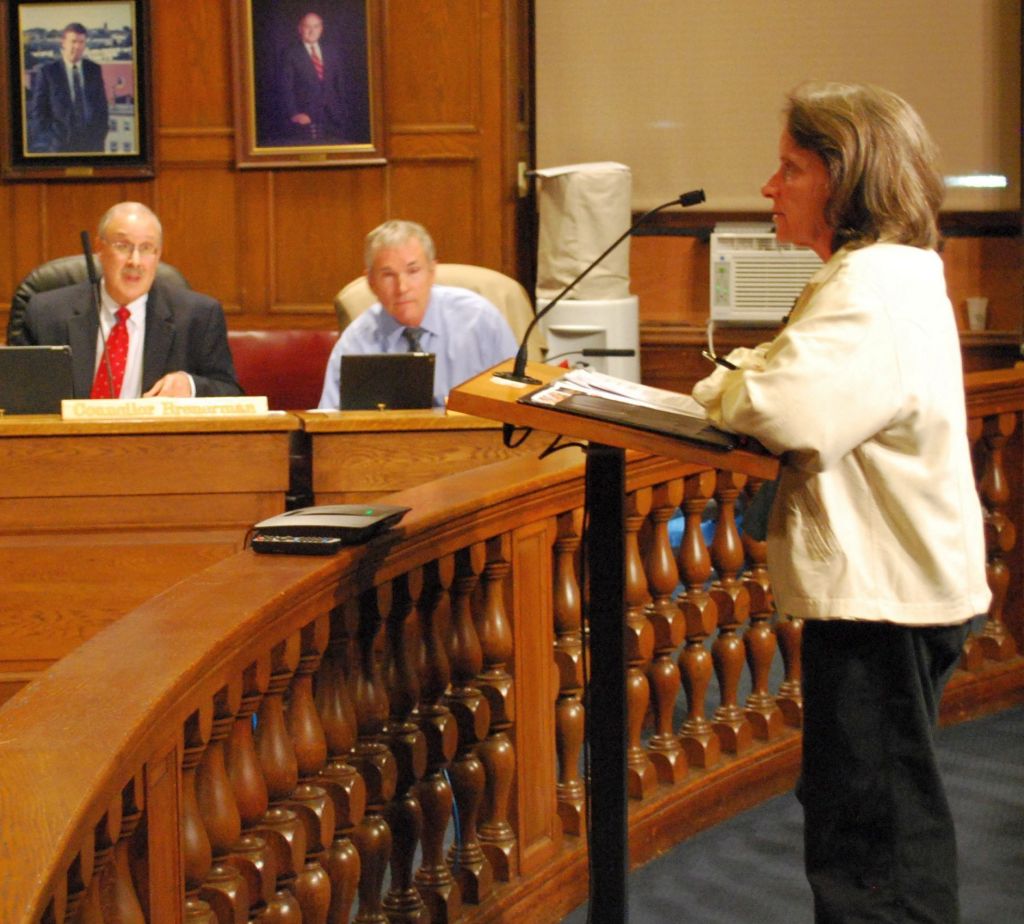PORTLAND — A citywide minimum wage of $10.10 per hour will go into effect Jan. 1, 2016, after the City Council approved the ordinance by a 7-2 vote Wednesday night.
The ordinance will increase the minimum wage to $10.68 per hour on Jan. 1, 2017, and future increases will be pegged to the rate of inflation in the Consumer Price Index urban measure.
Councilors, in effect, approved the ordinance for the second time in two months, but did so after reconsidering their 6-3 vote on July 6, so they could revise how workers making at least $30 per month in tips will be paid.
Councilors Nick Mavodones Jr. and David Brenerman voted against the ordinance.
An amendment to the ordinance introduced by Councilor John Hinck set the tipped wage at 50 percent of Maine’s $7.50-per-hour minimum wage, or $3.75 per hour. The ordinance passed July 6 would have set the new city tipped wage at $6.35 per hour, computed by deducting the “tipped credit” allowed by state law from the new city wage.
“I am saying yes to what I thought I was saying ‘yes’ to in July, and that is Councilor Hinck’s amendment,” Councilor Jill Duson said Wednesday.
Amendments setting the tipped wage at 50 percent of the city minimum wage, to eliminate the inflation index, and to exempt 14- and 15-year-old workers were defeated.
The distinction between the tipped wage and tipped credit had proved confusing, and its potential cost and benefits set the tone for a two-hour public hearing on the reconsidered ordinance.
At $3.75 or $6.35, the ordinance requires business owners to pay the prevailing hourly minimum wage to make up any shortage in tips. Hearing testimony centered largely around the city’s restaurant industry; workers and business owners offered arguments on the expense of a higher tipped wage and the uncertainty of making a living on tips.
“I work 70-plus hours a week in the summer so I can afford to live in the city I was born in,” said server Heather McIntosh, accompanied by her son, Liam.
Andy’s Old Port Pub owner Jennifer Fox said her tipped workers earn the highest wages in the establishment.
“All of our servers do very well and do not depend on their $3.75 hourly rate. I don’t think there is a time of year when our servers are not making $20 an hour at least,” she said.
Steve DiMillo of DiMillo’s on the Water, and Gritty McDuff’s owner Richard Pfeffer estimated using the tipped credit measurement to set the minimum wage for tipped workers would cost them $236,000 and $130,000, respectively, in the next two years.
Pfeffer also argued against indexing future wage increases.
“If you want a vicious cycle, just tie wages to inflation,” he said. “It is very good for payroll taxes, and not good for an economy.”
Julia Legler, a server working on the peninsula, argued the higher tipped wage is a necessary protection in an industry where customers can be fickle, if not abusive.
“When you go in to work, you never know how much you are going to walk away with at the end of the day,” she said. “I shouldn’t have to be relying on a cultural norm to make money.”
Mike Araujo, an organizer for Restaurant Opportunities Centers United, said 82 percent of tipped wage earners are women, and the local median wage for tipped workers is estimated at $8.77 per hour.
Members of the Southern Maine Workers’ Center also read statements from people who could not attend the meeting. They conveyed tales of wage theft, sexual harassment, and threats to job security for speaking up against owners or customers.
Mavodones said those accounts were outside the scope of the discussion.
“I don’t think there is anything in this amendment that addresses some of the very legitimate issues people have raised about harassment and the way they are treated by customers,” he said.
He also called the enforcement provision, which assigns complaints to the city manager’s office, “weak,” but said it could be improved. Hinck had praised the enforcement aspect because employers in violation would also be required to pay legal costs for workers who took them to court and won.
Passage of the minimum wage ordinance culminates work that began in March 2014 when Mayor Michael Brennan convened a subcommittee of labor and business leaders, academics, and city officials to determine how and if a minimum wage between 50 and 60 percent of the area median income could be enacted.
“This was a historic achievement,” Brennan said Thursday in a political campaign stop on Munjoy Hill. “We knew that the current minimum wage was far too low for workers to live on, and decided that as a city we needed to take the lead in giving workers a well-deserved, and much needed raise.”
The new ordinance could still be replaced by a $15-per-hour minimum wage ordinance covering all but municipal employees.
The citizen initiative on the Nov. 3 ballot, drafted by the city Green Independent Party, would boost the minimum wage to $15 for all private employers by July 1, 2019. Companies employing more than 500 people, either locally or nationally, would have to pay a minimum of $15 per hour beginning July 1, 2017.
David Harry can be reached at 781-3661 ext. 110 or dharry@theforecaster.net. Follow him on Twitter: @DavidHarry8.

Portland City Councilors David Brenerman, left, and Jon Hinck listen as Andy’s Old Port Pub owner Jennifer Fox speaks out against increasing the tipped wage in the city at a Sept. 9 City Council hearing.
Comments are no longer available on this story